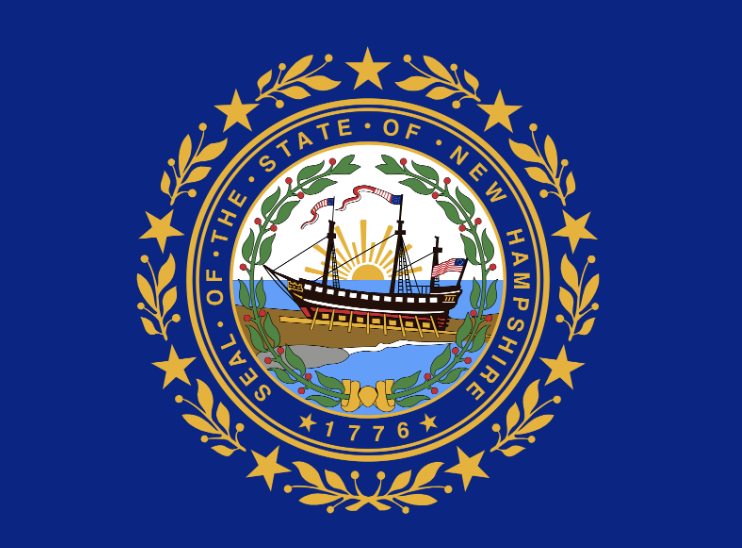House Bill 611 was signed into law by the Republican Governor of New Hampshire, Chris Sununu, bringing hope to legalization reform in the Granite State in the very near future. Sponsored by Democratic representatives Suzanne Vail, Christina Seibert, and Wendy Thomas, this new law not only addresses modifications to the qualifying medical conditions under the state’s Therapeutic Cannabis Program (“TCP”), but also a newly established Commission to study state-controlled sales of cannabis.
Pursuant to House Bill 611, the members of the Commission will include: five (5) members of the Senate; five (5) members of the House of Representatives; the Attorney General, or designee; the Governor, or designee; a representative from the New Hampshire Chiefs of Police; a representative of the New Hampshire Bankers Association; Chairman of the New Hampshire Liquor Commission, or designee; a representative of the New Hampshire Cannabis Association; a representative of the ACLU – New Hampshire; a representative of the Alternative Treatment Centers; a medical professional, appointed by the Senate President; and a representative of Communities for Alcohol and Drug-free Youth. The Commission will study the feasibility of establishing a state-controlled system to sell marijuana to adults twenty-one (21) years and older. From developing preventions to prohibit over-saturation of retail establishments to empowering local municipalities from limiting or prohibiting such retail establishments through local ordinances, one of the Commission’s main review tasks is focused on the local levels. Further, the Commission will examine the best methods of harm reduction to those under the age of twenty-one (21), including establishing controls for marketing and messaging of the sale of marijuana. At the industry level, the Commission will determine the controls of distribution and access, as well as best processes to not impose additional taxes to ensure the market remains competitive. The Commission will have until December 1st, 2023, to issue a final report of its findings and any recommendations for proposed legislation. This deadline is set, so legislators can consider such recommendations when they reconvene for the second half of the two (2)-year session in January 2024.
In addition to the newly formed Commission, House Bill 611 slightly expands the qualifying medical conditions under the state’s TCP by removing the requirement that for a patient to qualify under “severe pain,” he or she did not respond to previously prescribed medication or surgical measures or for which other treatment options produced serious side effects. Further, it enlists the Therapeutic Cannabis Medical Oversight Board to develop, review, and update cannabis product labels and educational material about the risks of cannabis use to be provided to qualifying patients by Alternative Treatment Centers (“ATCs”) and certifying medical providers. Moreover, the new law sets forth clarification on the prohibition of hemp-derived products containing greater than 0.3% of THC on a dry weight basis, including any formulations such as delta-8 THC, delta-9 THC, or any other THC insomer variant.
This new law is a significant step forward in New Hampshire’s marijuana reform policies as the Governor’s recent shift on legalization inspired a last-minute push for new legislation. After the Senate defeat of House Bill 639 in May, which would have created an adult-use market including a regulatory licensing scheme, Governor Sununu announced that he would back legalization if lawmakers utilized a different approach. Under his purview, Governor Sununu suggested to lawmakers that the state should regulate the adult-use marijuana market in the same way it controls the sale of wine and spirits. In his opinion, this pathway would not only highlight the importance of harm reduction by keeping children away from such substances, but also eliminate a need for additional taxes. In New Hampshire, the state prohibits the sale of liquor in private stores as such sales are limited to government-owned outlets only. Further, under Governor Sununu’s proposed changes, he emphasized the necessity of the lawmakers to ensure there are not marijuana retail stores densely concentrated within one (1) municipality. Under House Bill 639, localities would not have been afforded the opportunity to limit or ban cannabis businesses. With Governor Sununu’s endorsement, it opened the path for the Senate to support legalization reform in contrast to their prior history of blocking several bipartisan bills that have been cleared by the House in recent years.
Currently, in New Hampshire’s medical marijuana program, the TCP is permitted to license up to five (5) Alternative Treatment Centers (“ATCs”) in the state; however, there are only three (3) licensees to date operating only seven (7) dispensaries throughout the state. If you are interested in discussing your options in entering New Hampshire’s competitive marijuana market, contact our Team today!

